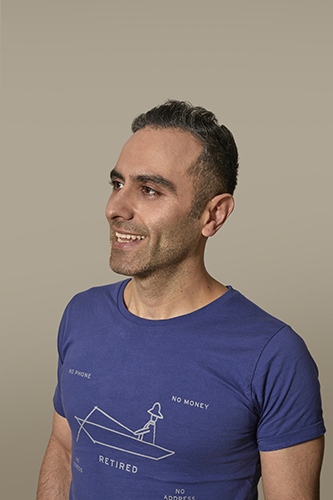Anthony Noun
Anthony Noun

Nationality: British
Programme: Executive MBA, 2017
Pre-MBA: Director, Noun Public Affairs, London, UK
Post-MBA: Co-Creator of Braegen.co, London, UK
Current industry: Marketing/PR
Transitions made: Function
Why did you decide to do an Executive MBA?
For over 15 years, I’d been working as a communications consultant. I’d gathered some fantastic experience in different roles, from heading up the press department at Westminster City Council, to acting as the Head of External Affairs for the Royal Institute of British Architects (RIBA). However, I was mindful that my communications and PR expertise were too public and third sector focused. Acting as a consultant to a large number of household names, I was effectively a one-man band, yet my dream was to build something with others and establish an integrated communications agency.
I decided that an EMBA would help me broaden my experience and gain the tools, know-how and confidence to understand the heart of running a business. I also felt that it would provide me with a badge of private-sector honour.
Having researched key business schools, Cass was a perfect fit for me culturally, offering a diverse range of experiences. In addition, the networking opportunities with my classmates and the focus on group-work helped me forge long-term relationships in a new environment.
What was the learning experience like?
The first year was a very intense period, as we covered a lot of ground. The International Consultancy Week in Chile towards the end of the first year cemented all of the learning. It took us away from our usual environment and brought us into a real-world company scenario. Though faced with the different challenges of an emerging economy, and working in a different culture, we were able to pull together as a team and create an insightful consultancy report with tangible recommendations for the company.
The international electives were amazing, I took the South African elective in the second year. Rather than learning about leadership in a classroom environment, which can be sterile and unreal, it enabled us to visit organisations and learn about how they deal with a fast-moving, post-apartheid environment. It was very inspiring and challenged the notion of the messianic single-leadership model, which inspired me when I began to develop the concept for my own agency.
During the second year, I was also part of a group of EMBA students who were finalists in the Financial Times MBA Challenge. We were joined by students from Kellogg Northwestern University and Kellogg HKUST to help ‘Stop the Traffik’, a human trafficking monitoring organisation raise awareness of the NGO’s new smartphone app. It was a brilliant opportunity to network with students from other global business schools and apply some of the skills and knowledge learnt on the programme to use.
The EMBA introduced me to new ideas and new ways of doing things. Some of the lecturers and modules enabled me to explore and embrace emergence, allowing us to have light-bulb moments. For example, Professor Cliff Oswick introduced me to dialogic organisational development. It inspired me to apply the concept to external communications and develop some of the philosophy behind the PR and Communications agency, Braegen, I’ve co-created.
How has the programme impacted your career aspirations?
The programme gave me the confidence and gravitas to go out there and make my dream happen.I handed in my Business Mastery Project (BMP) in September 2017, and launched phase one of the company in October to a group of trusted advisors, enabling us to refine our concept, product, website and messaging.
We’re currently supported by the City Launch Lab, the university’s incubator for start-ups. We work in an office, shared with 64 other ventures, with 12-months of hot-desk access, ongoing mentoring, coaching and networking opportunities. We have mentors who are excited about what we do and want to help take our new agency forward into a promising future.